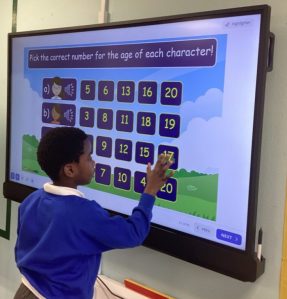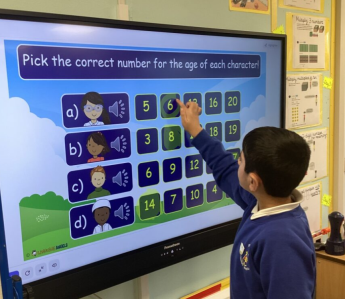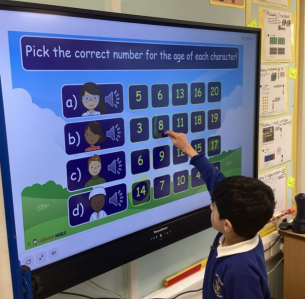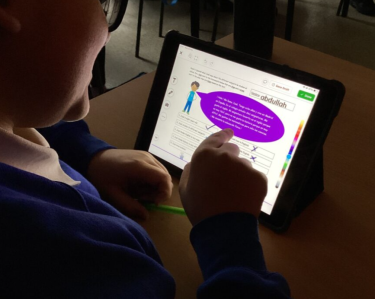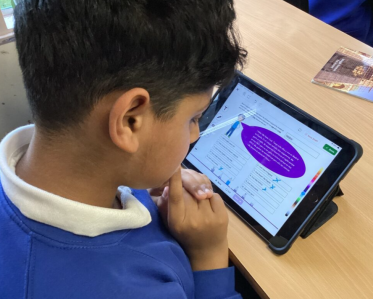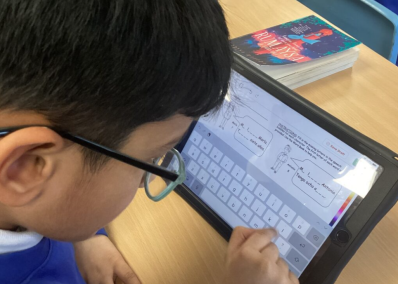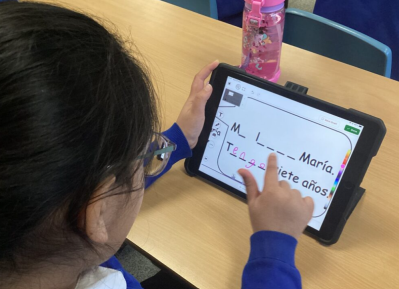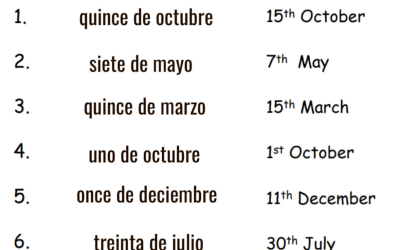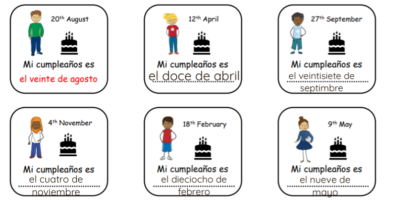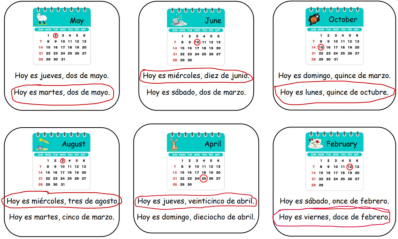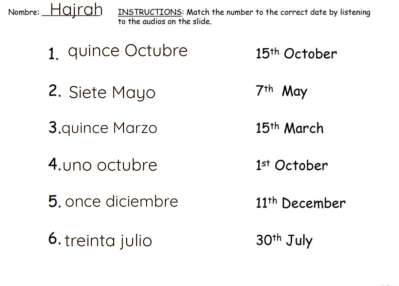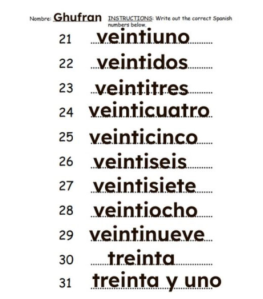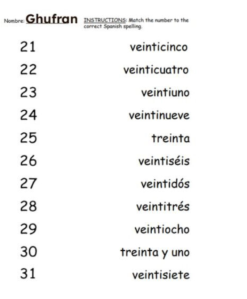Modern Foreign Language
Hola!
The Modern Foreign Language we teach in KS2 is Spanish.
At Stoneyholme Primary School, we learn Spanish in Key Stage 2 from Year 3 onwards. We believe that the learning of a foreign language provides a valuable educational, social and cultural experience for our pupils. It helps them to develop their ability to communicate, including key skills of speaking and listening and it gives children a new perspective on the world, encouraging them to understand their own cultures and those of others.
I am a successful Stoneyholme linguist because
- I feel confident using words and phrases in another language
- I can listen to and understand vocabulary in another language
- I can understand and appreciate the culture of other countries
- I can hold a short simple conversation in another language
- I can read words and phrases in another language
- I can write words in another language
Please keep visiting this page to find out what we are learning and how we are doing.
Curriculum Overview




Policy
Spanish
Vision
At Stoneyholme Primary School we are committed to expanding the horizons of our pupils and want to help them engage with the wider world beyond the one they inhabit. We want to foster curiosity and to produce citizens of the world who are flexible and adaptable and who respect other cultures, lifestyles and customs.
Intent
Our Spanish curriculum is designed around six substantive concepts:
- Vocabulary
- Speaking
- Reading
- Writing
- Listening
- Culture
We want all of our children
- to have access to the cultural capital that will allow pupils to take advantage of opportunities and experiences later in life
- to develop understanding of another culture, its traditions and customs
- to develop a sound knowledge of linguistic structures and vocabulary that will lay the foundation for further language study
- to develop perseverance and resilience through the learning of a foreign language
- to access ideas and cultural customs from outside the immediate community
- opportunities for the development of linguistic skill mirrored in English teaching will be identified and taught through the Spanish curriculum
Implementation
The teaching of Spanish is delivered by the Spanish specialist in school using the Language Angels Framework supplemented with additional resources and teaching materials from the Stoneyholme curriculum. Each teaching unit focuses on the skills of reading, writing, speaking and listening.
To aid progression within our medium-term planning, we draw on the non-statutory KS2 Languages framework guidance.
Spanish is taught across KS2 every other term. Years 3 to 6 have a 45-50 minute lesson once a week for three terms of the year.
The teacher plans units of study for each half term. This planning ensures pupils are given the opportunity
- to develop specific knowledge of a language, learning words and structures that enable pupils to ask and answer questions
- to listen to, read and understand stories, songs, poems and texts
- to listen to, join in with, read, speak and write Spanish
- to engage with lots of listening tasks to tune into Spanish pronunciation and to learn how to produce the sounds of the language
- to learn vocabulary and to build up to writing simple sentences and then to short paragraphs
- to write with accuracy, using the correct tense and construction
Impact
The Spanish curriculum is planned and organised to ensure progression. If pupils are keeping up with the curriculum they are deemed to be Expected (EXS) or Greater Depth (GDS).
Pupils are formally assessed at the end of each unit to ensure they are making progress. The teacher will assess:
- knowledge of vocabulary - accurate spelling and recall of words
- skill in pronunciation of new Spanish words
- listening - identifying words and translating accurately
- writing accurately in Spanish - using correct tense and punctuation
- reading and translating new language
Throughout the learning units, the teacher will assess informally in order to inform future planning and support.
To monitor the effectiveness of the curriculum, we employ a number of monitoring strategies:
- pupil interviews by subject lead
- book looks
- end of unit quizzes
- assessment data analysis
- pupil voice
Pupil Voice
What do you like learning in Spanish?
Everyday we talk English so it's nice to be able to talk in a different language.
Year 3 Pupil
I enjoy learning a new language because I like when I am challenged with learning new words and remembering them.
Year 4 Pupil
If I go to a Spanish speaking country, I can communicate with them to make friends.
Year 5 Pupil
Learning Spanish helps prepare me for learning a foreign language at secondary school. It helps me understand how other languages are constructed.
Year 6 Pupil
Showcase
Year 3
/i/video/My_Movie_9-1080p60_2.mov
Year 4 Spanish
Year 4 Showcase
/i/video/Yr_4_Spanish_showcase-compressed_version.mov
Year 5 Spanish
/i/video/My_Movie_8-1080p60_3.mov
Year 6
/i/video/My_Movie_10-1080p60.mov





